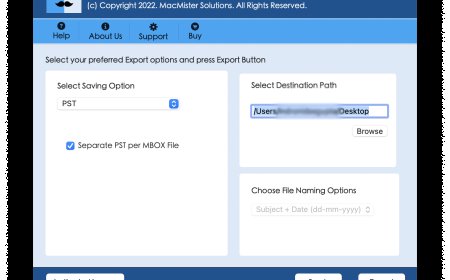What Does an AI Agent Do? Real Examples and Practical Insights
Understand the core functions of AI agents, their role in modern systems, and how they impact industries like healthcare, finance, and communication.

AI isnt just futuristic anymoreits fully embedded in our everyday tools. From virtual assistants to recommendation engines, intelligent systems are helping businesses and users work smarter. At the center of this evolution is the concept of an AI agent. So, what does an AI agent do that makes it such a powerful part of modern systems?
AI agents are designed to perceive their environment, process information, and perform actions to meet specific goals. In this article, well explore real-world applications of AI agents, how they function, and why theyre key to intelligent automation. Understanding What Does an AI Agent Do? can help you make informed decisions as AI continues to shape how we live and work.
Breaking Down the AI Agent Concept
An AI agent is a software-based system capable of interacting with its environment and making autonomous decisions. The agent receives input from sensors (like speech, images, or user data), processes it through algorithms, and performs a suitable action.
Some AI agents are rule-based and respond only to specific triggers, while others learn from past interactions and adapt over time. This makes them useful for a wide range of industriesfrom healthcare and retail to manufacturing and logistics.
Main Functions of an AI Agent
AI agents typically perform these core tasks:
-
Data Sensing: Gathering relevant data from the environment
-
Processing Input: Understanding data using models and algorithms
-
Decision-Making: Choosing the most effective action based on the objective
-
Acting: Executing the decision, either digitally or physically
These systems work in loops, constantly learning and adjusting to perform better over time.
Real-World Applications of AI Agents
The versatility of AI agents means they can be found in nearly every industry. Lets look at a few examples:
-
Healthcare: AI agents analyze patient histories to suggest treatments or monitor conditions in real-time.
-
Retail: Personalized product recommendations and chatbot support during shopping sessions.
-
Finance: Fraud detection systems that flag suspicious transactions and trading bots that react to market data.
-
Smart Devices: AI-powered thermostats, security cameras, and lighting systems that adjust based on usage patterns.
Each of these examples uses an AI agent to provide smarter, faster, and more efficient services.
Types of AI Agents and Their Intelligence
There are several categories of AI agents, depending on their behavior and intelligence level:
-
Simple Reflex Agents: Respond based only on current input (e.g., spam filters).
-
Model-Based Agents: Use internal models of the world to make better decisions.
-
Goal-Based Agents: Choose actions based on desired outcomes.
-
Utility-Based Agents: Evaluate multiple possibilities and choose the one with the highest payoff.
-
Learning Agents: Continuously improve by learning from past outcomes.
The higher the type, the more adaptive and intelligent the agent becomes.
Why AI Agents Are Valuable
AI agents offer several distinct benefits for organizations and end-users:
-
Speed: Processes data and reacts faster than humans.
-
Scalability: Can handle large volumes of interactions simultaneously.
-
Availability: Operates 24/7 without fatigue or breaks.
-
Accuracy: Reduces human error and enhances decision-making.
These advantages are why businesses are investing heavily in AI agent technologies.
Limitations and Challenges
Despite their advantages, AI agents also come with challenges:
-
Bias: Agents may reflect the biases present in training data.
-
Transparency: Its often difficult to explain how complex agents arrive at decisions.
-
Security: Agents connected to networks can be vulnerable to attacks if not secured properly.
-
Ethics: Decisions made by AI may have legal or moral implications, especially in areas like healthcare or finance.
Organizations must approach AI deployment with caution, keeping both ethical and operational risks in mind.
The Future of AI Agents
AI agents are only going to get more advanced. With improvements in natural language processing, computer vision, and deep learning, tomorrows agents could:
-
Understand emotions and context
-
Collaborate in human-like ways
-
Automate complex workflows
-
Innovate independently within specific domains
We are moving toward a future where AI agents become full digital partners rather than just tools.
Final Thoughts
Knowing What Does an AI Agent Do? helps frame the future of intelligent automation. Whether you're a business strategist, developer, educator, or tech enthusiast, understanding the capabilities and limitations of AI agents is essential for building smarter and more sustainable solutions.
From customer service bots to intelligent monitoring systems, AI agents are no longer optionaltheyre foundational to digital transformation across every sector.































![How can I Copy and Paste a PST File to OLM File - [SOLVED]](https://www.breakingmesanews.com/uploads/images/202507/image_430x256_68767108d1f81.jpg)



